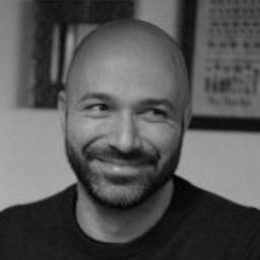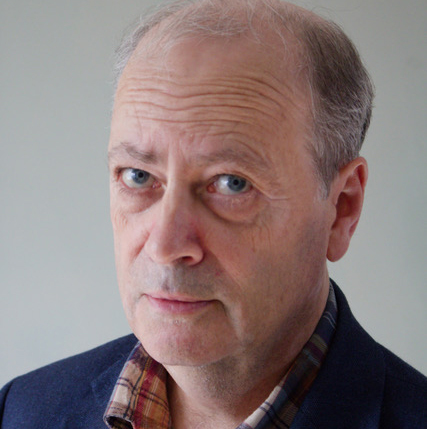Working with Dreams – Series 1
4–part interactive online cpd series
Key Info
Introduction
Gerhard Payrhuber
Sat 11 JAN 2025
15.00 – 17.00 GMT
Recording £25
Freudian Approach
Luca Bosetti
Sat 25 JAN 2025
15.00 – 17.00 GMT
Recording £25
Jungian Approach
Julian Masters
Sat 15 FEB 2025
15.00 – 17.00 GMT
Recording £25
Relational Approach
Alicia MacDougall
Fri 21 FEB 2025
17.00 – 19.00 GMT
Recording £25
Overview
What are dreams?
Why do we dream?
And why do dreams matter to psychotherapy?
While dreams were central to the early foundations of psychotherapy following Freud’s Interpretation of Dreams, therapists today may receive little or no teaching on them in their primary training. So, when a client shares a dream in a session (which they often do so spontaneously), we may feel unsure or confused how to work with them effectively in practice. The Inner Citadel Institute’s CPD interactive workshop series on Working with Dreams aims to address this gap.
The first workshop will introduce the topic from a pluralistic theoretical perspective. The following workshops in the series will go into more depth on specific theoretical modalities for working with dreams using psychoanalytic approaches. Participants are invited to attend any of the individual workshops or join for the whole series. The series is open to psychotherapists, counsellors, or therapists of any modality with an interest in working with dreams. No prior experience or knowledge is required.
Seminar Content
PART 1 – Introduction to working with dreams in psychotherapy
Speaker: Gerhard Payrhuber
In the first part I will give you a short overview of various concepts about dreams that have influenced the field of psychotherapy. A. Bion (1991) wrote in his introduction to A memoir of the future that “there may be modes of thinking to which no known realization has so far been found to approximate”. Such modes of thinking (hallucinosis, mental illnesses) may be difficult to discover because they are obscured by a ‘memory’, or a ‘desire’ or an ‘understanding’ to which they are supposed – wrongly – to approximate.
But how do we not get obscured by our own memories and desires? In our daily practice as psychotherapists, we do not work with theories or therapeutic schools or dreams but with people. All people in all cultures do dream. We could say that humans need to sleep so that they can dream, not just to rest. Neuroscience shows that the brain does not rest but switches from logic (pre-frontal lobe) dominance to affective (limbic system) dominance.
I will offer my integrative approach in working with dreams as a necessary part of the therapeutic alliance, with specific focus on dreams when working with complex trauma and therapeutic stalemates or complex re-enactments. Dreams can offer types of intervention that speak to the intersubjective third and the intersubjective relationships that significantly shape our lives.
I will further highlight how engaging with dreams can be an important source of insight, knowledge and awareness about the therapeutic process and the importance of independent self-states as well as solitude and calmness. The intersubjective awareness will help us to integrate individual and collective conscious realities and can open the door to things we were not willing to see, think and attend to. The political and social importance of dreams will be highlighted when a therapeutic frame aims to empower or support people in avers conditions of living.
In this seminar we will allow time for practical exercises on working with dreams and what might be a helpful or unhelpful way of working with dreams. We will use experiential exercises that will invite all participants to share dreams. Please be aware that if you share clients’ dreams you must anonymise the material presented and that you will need prior consent from them.
PART 2 – A Freudian approach to working with dreams
Speaker: Luca Bosetti
On my way to discovering the solution of the dream all kinds of things were revealed which I was unwilling to admit even to myself. Sigmund Freud, The interpretation of Dreams, 1900
While the science of Freud’s time considered dreams to be meaningless, for Freud every dream was meaningful and offered a path into understanding the unconscious mind. His 1900 The Interpretation of Dreams provided a groundbreaking theory of dreams and an innovative method for interpretation, called free association, which continues to be used in contemporary psychoanalysis. In essence, instead of telling patients what he thought their dreams meant, Freud invited them to express what came into their mind about each element of their dream.
In the first part of this live webinar, Luca Bosetti will discuss the importance and impact of The Interpretation of Dreams on the field of psychoanalysis, highlighting how while being an original thesis, it was also a highly personal book which offers insight into Freud’s inner world.
In the second part, Luca will share how Freud’s analytic method of free association can be applied in clinical practice, drawing on dream vignettes from client material. Participants will also be invited to share their own dreams or their anonymised clients’ dreams (with prior consent) for exploration and discussion.
PART 3 – A Jungian approach to working with dreams
Speaker: Julian Masters
A story told by the unconscious mind has a beginning, a development and an end, but the same is not true of a dream. Its dimensions in time and space are quite different; to understand it you must examine it from every aspect – just as you may take an unknown object in your hands and turn it over and over until you are familiar with every detail of its shape. Carl Jung, Man and his symbols, 1965.
While Freud introduced free association as a technique to interpret dreams, Jung proposed that, to understand a dream, one needed to pay close attention to the actual form and content of the dream itself, rather than moving away from it. Jung believed each dream was trying to convey something specific about the unconscious. His method for interpretation, amplification, was designed to expand the meaning of dreams by drawing on individual and collective symbols and images, infusing life with vitality and meaning, and connecting one to their soul and the transcendent.
In this live webinar, Julian Masters will discuss Jung’s method of amplification. Julian will emphasise how traditional as well as contemporary form of dream interpretation in Jungian work is collaborative. Meanings are not imposed by an authoritative analyst but are the product of dialogue and creative exchange within the intersubjective therapeutic setting.
In the second part of this webinar, Julian will share how Jung’s analytic method of amplification can be applied in clinical practice, drawing on dream vignettes from client material. Participants will also be invited to share their own dreams or their anonymised clients’ dreams (with prior consent) for exploration and discussion.
PART 4 – A Relational Psychoanalytic approach to working with dreams
Speaker: Alicia MacDougall
In this live webinar Alicia Ann MacDougall will offer a relational psychoanalytic perspective on dreamwork in the therapy room, outlining the role of dreams in shaping our relational living.
In the first part of the webinar, Alicia will delineate the ways in which dreams provide a foundation for relating; provide a container (Bion, 1967/1993) for the unthought known (Bollas, 1987); create meaning through relationships, and ultimately foster dispersion of relational dynamics originating from the culture of the times and more. Alicia will explain the use of dreams as a tool in psychotherapy to provide meaning, establish and maintain a therapeutic relationship, and thus enhance and progress treatment.
She will explore the synergistic qualities between dreams and relationships, and how that synergy generates biographically, professionally, and psychotherapeutically formative experiences.
In the second part, Alicia will share how an intersubjective approach to dreamwork can be applied in clinical practice, drawing on dream vignettes from client material. Participants will also be invited to share their own dreams or their anonymised clients’ dreams (with prior consent) for exploration and discussion.
This workshop is inspired by Alicia’s recent book The Relational Interpretation of Dreams: When it’s about more than your mother (2023), Routledge. https://www.routledge.com/The-Relational-Interpretation-of-Dreams-When-its-About-More-Than-Your-Mother/MacDougall/p/book/9780367754143
Who is this training for?
This webinar is designed for supporting therapists to develop a new professional skill while also being an opportunity for personal growth and development through working with their own dream material.
Learning Objectives
- To consider the significance of dreams to depth psychotherapeutic work from a range of theoretical perspectives
- To build an understanding of how to integrate dreamwork into clinical thinking
- To develop skills and techniques for working effectively with dreams in therapeutic practice.
Speakers

Gerhard Payrhuber
As a senior psychotherapist and supervisor with over 18 years of clinical experience, Gerhard started his therapeutic career by working with bereavement and issues of trauma and grief as a befriender for the befriending network and at Trinity Hospice in Clapham, London.
Creativity is a vital part of his style of work. He has been able to develop his relational style of working in a variety of settings where a trusting and creative relationship is a vital part of helping people with mild as well as complex struggles. His background as a theatre director and philosophy student (Karl Popper) in Vienna helped him to develop a curious, open and political mind.
Gerhard works with people who suffer from traumatic experiences, depression, eating disorders, anxiety-related issues and those who can’t just work out why they feel so unhappy, confused or helpless. He helps people with obsessive and compulsive issues and works with people who face a suicidal crisis. He further works with people who struggle with sex addictions, and other “psychiatric” conditions.
His therapeutic experience is further informed by his work at various NHS hospitals (The Maudsley Hospital, St Thomas’ Hospital, The Royal Marsden) and in a psychiatric community as well as in private practice and the third sector, such as One-in-Four and Maytree. Lived experience and realities such as racism, heteronormativity, poverty and class inform his therapeutic work fundamentally and help him to recognise problems as both subjective and political as well as socio-economical.
Gerhard is UKCP registered via Metanoia Institute and has further trained at the IGA (Institute for Group Analysis) and he is a fully EMDR qualified practitioner. As a tutor and lecturer he focuses on contemporary approaches to psychoanalysis and psychotherapy and he is part of the relational psychoanalytic movement (IARPP).

Luca Bosetti
Luca is a psychoanalyst working in private practice in Nottingham and London. He is a member of the Centre of Freudian Analysis and Research, a member of the College of Psychoanalysts – UK, and a member of the UKCP.
He has a PhD in Lacanian psychoanalysis and ethics from Nottingham University and he has previously worked for several years as a psychotherapist in the field of addiction. He teaches regularly in the public seminar and in the introductory and clinical training programmes at Cfar and at the Guild of Psychotherapists and he is a clinical supervisor at the Psychosis Therapy Project at Islington Mind.

Julian Masters
Julian is a Jungian analyst. He trained in London with the BPF (British Psychotherapy Foundation). He currently teaches on BPF’s public dream workshops, MSc course, introductory course and training theory program. He teaches also on the WMIP analytical psychotherapy training in Birmingham.
He is a member of BJAA (British Jungian Analytic Association) and the IAAP (International Association of Analytical Psychology). He lives in Oxford where he works with adults in private practice. Julian is also a musician, composer and writer.

Alicia MacDougall
Alicia MacDougall, PsyD, ABPP, is a clinical psychologist, Board Certified in Psychoanalytic and Psychodynamic Psychology. She received her doctorate from Antioch University New England and completed a post-doctoral fellowship at Cambridge Health Alliance/Harvard Medical School, working on child and adolescent psychiatric inpatient units.
She holds multiple leadership positions, including Academy Coordinator, American Board and Academy of Psychoanalytic and Psychodynamic Psychology; Early Career Representative, Psychoanalytic and Psychodynamic Psychology and Psychoanalysis Specialty Council; and Co-Chair of the APA Society for Psychoanalysis and Psychoanalytic Psychology (Division 39) Early Career Committee.
Currently, she is in private practice in Keene, New Hampshire, working with children, adolescents, and adults presenting with severe and persistent mental illness, mood and personality disorders, and complications from emergency medical events, pervasive medical diagnoses, somatic symptomatology, and various forms of psychological and physical abuse. She also provides support to parents with children with current or past NICU experiences and provides psychotherapeutic services for perinatal and postpartum concerns.
Alicia provides consultation and assessment services to schools from a relational psychoanalytic perspective. She is Affiliate Faculty, Department of Clinical Psychology, Antioch University New England, where she is an instructor and clinical supervisor. Book author of The Relational Interpretation of Dreams: When it’s About More Than Your Mother, Dr. MacDougall is a firm believer in the synergistic quality of dreams and relationships and utilizes dreams as tools for enhancing the intersubjective spaces of the many worlds in which her work encompasses.
